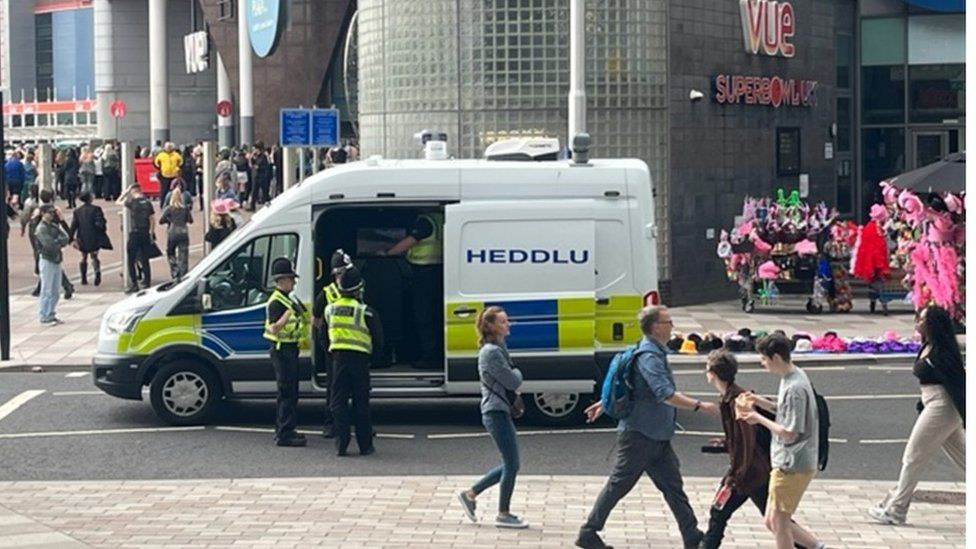
The van was also used in Cardiff ahead of the Beyonce concert in May
Thousands of fans attending the Harry Styles concert in Cardiff could be scanned by live face recognition cameras deployed in the area by South Wales Police.
The cameras will help identify people wanted for “priority offences”.
The technology will be used on both the 20 and 21 June along Queen Street.
Police also used the cameras at the Beyoncé concert and at the Coronation, but the technology has been criticised by human rights campaigners.
Harry Styles fans have been camping overnight in the city centre on Westgate Street, opposite the stadium.
European law-makers recently backed an effective ban on live face recognition cameras in public spaces.
A live face recognition camera works by comparing faces with a “watch list” using Artificial Intelligence.
Tents line the street opposite the stadium on Monday afternoon
The watchlist could be made up of people who are wanted for crimes, for example.
South Wales Police said that if you were not on a watch list, the biometric data would not be stored and it would be immediately deleted.
The police force also stated on Twitter: “Fully appreciate the concert has a young audience, however concert-goers won’t be the only people in the city centre during this time.”
The CCTV footage is recorded and kept for up to 31 days.
This Twitter post cannot be displayed in your browser. Please enable Javascript or try a different browser.View original content on Twitter
The BBC is not responsible for the content of external sites.
Skip twitter post by South Wales Police
Allow Twitter content?
This article contains content provided by Twitter. We ask for your permission before anything is loaded, as they may be using cookies and other technologies. You may want to read Twitter’s cookie policy, external and privacy policy, external before accepting. To view this content choose ‘accept and continue’.
The BBC is not responsible for the content of external sites.
Big Brother Watch is a UK civil liberties campaign group, and it’s legal and policy officer Madeleine Stone, said live facial recognition “a dangerously authoritarian mass surveillance tool that must be banned”.
“South Wales Police’s own statistics show live facial recognition to be around 90% inaccurate, meaning this highly intrusive technology is unlikely to have any policing benefits but would have a serious cost to police resources and the public’s privacy rights,” she said.
“At South Wales Police’s last deployment, over 86,000 innocent concertgoers were scanned with zero matches.”
Related Internet Links
The BBC is not responsible for the content of external sites.








